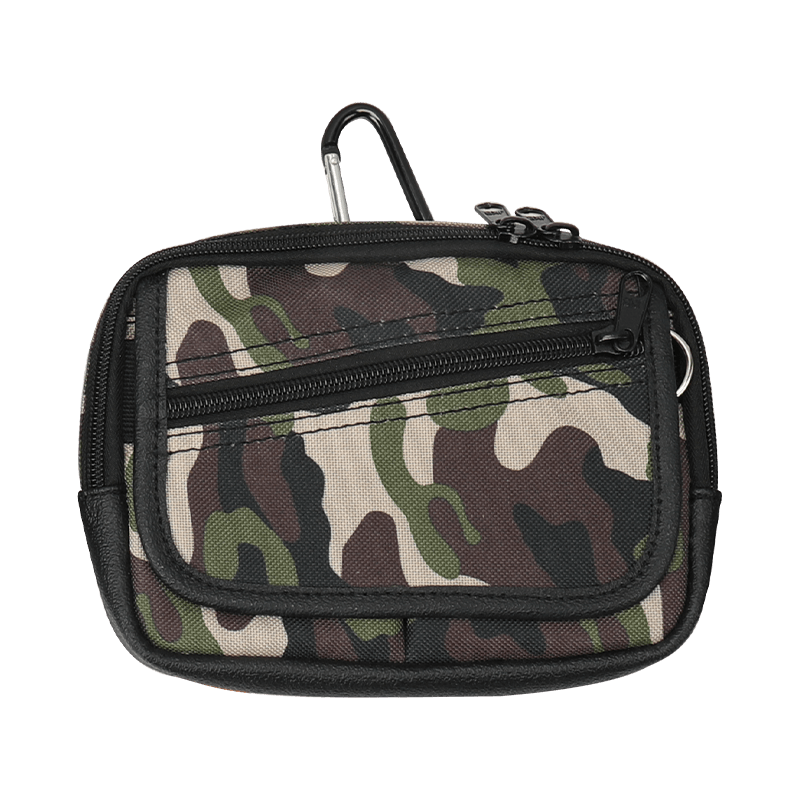
The Convenience and Sustainability of Food Bags
In our fast-paced world, finding convenient and sustainable ways to meet our daily needs is crucial. Food bags have emerged as a popular solution for individuals and families seeking a convenient and eco-friendly method of storing, transporting, and preserving their food. This article explores the concept of food bags, their benefits, and their impact on our lives and the environment.


What are Food Bags?
Food bags, also known as reusable food storage bags, are a modern alternative to traditional single-use plastic bags and containers. They are typically made from food-grade materials such as silicone, fabric, or other durable and non-toxic materials. These bags come in various sizes and designs, offering versatility for storing different types of food items.
Benefits of Food Bags
Convenience: Food bags offer a high level of convenience for busy individuals. They are lightweight, compact, and easy to carry, making them ideal for on-the-go lifestyles. Whether you're packing lunch for work, snacks for a hike, or storing leftovers in the refrigerator, food bags provide a flexible and practical solution.
Reusability: Unlike single-use plastic bags, food bags are designed to be reused multiple times, reducing waste and environmental impact. By choosing reusable food bags, you contribute to the reduction of plastic pollution and promote a more sustainable lifestyle.
Food Preservation: Food bags are designed to keep your food fresh for longer. Many food bags are airtight and leak-proof, preventing air exposure and moisture, which can lead to food spoilage. By using food bags, you can extend the shelf life of your food, reducing food waste and saving money.
Versatility: Food bags are suitable for a wide range of food items, including fruits, vegetables, sandwiches, snacks, and even liquids. They often come with features like secure zippers, transparent windows, and compartments for easy organization and identification of the stored items.
Easy Maintenance: Cleaning food bags is typically a straightforward process. Most reusable food bags are dishwasher-safe or can be easily washed by hand using warm water and mild soap. This convenience makes them practical for everyday use.
Sustainability and Environmental Impact
Food bags play a significant role in reducing single-use plastic waste. According to the Earth Day Network, over 8 million metric tons of plastic enter our oceans each year, posing a severe threat to marine life and ecosystems. By choosing reusable food bags over disposable options, you can help minimize plastic pollution and contribute to a healthier planet.
Moreover, the production of food bags often involves fewer resources compared to single-use plastic bags. Many reusable bags are made from materials that are more sustainable and environmentally friendly, such as silicone or fabrics derived from recycled materials.
Tips for Choosing and Using Food Bags
Look for food bags made from non-toxic, food-grade materials.
Opt for bags that are easy to clean and maintain.
Select bags with a secure and leak-proof closure mechanism to prevent spills and contamination.
Consider different sizes and designs to suit your specific needs.
Take advantage of food bags to reduce food waste by storing leftovers or meal prepping.
Conclusion
Food bags are a practical, convenient, and sustainable solution for storing and transporting food in our busy lives. By embracing reusable food bags, we can reduce single-use plastic waste, preserve the freshness of our food, and contribute to a greener and healthier planet. With their versatility and eco-friendly nature, food bags are an excellent addition to any kitchen and a step towards a more sustainable future.
Recommended
-
13 " JKB-010 Tool Bag JKB-01019-13
Product Description: Steel Wire Enforced Big Mouth Tote1 Pair Of Webbing Handle2-D RingsFront: 3-Poc... -
16 " JKB-010 Tool Bag With Shoulder Strap JKB-01019-16
Product Description: Steel Wire Enforced Big Mouth Tote1-Shoulder Strap1 Pair Of Webbing Handle2-D R... -
12" ECONOMICAL GATE MOUTH TOOL BAG (200 SERIES , BLACK/GRAY) JKB-010E19-12
Product Description: Steel Wire Enforced Big Mouth Tool Bag1 Pair Of Webbing HandleFront: 3-Pockets -
14 " JKB-011E Economical Tool Bag with Shoulder Strap(200 Series) JKB-010E19-14
Product Description: Steel Wire Enforced Big Mouth Tool Bag1-Shoulder Strap2-D Ring1 Pair Of Webbing... -
16 " JKB-011E Economical Tool Bag with Shoulder Strap(200 Series) JKB-010E19-16
Product Description: steel wire enforced big mouth tool bag1-shoulder strap, 2-D ring1 pair of webbi... -
18" JKB-011E Economical Tool Bag with Shoulder Strap(200 Series) JKB-010E19-18
Product Description: steel wire enforced big mouth tool bag1-shoulder strap, 2-D rings1 pair of webb... -
12" Economical Gate Mouth Tool Bag with Pp Bottom(200 Series) JKB-011B19-12
Product Description: 1 Pair Of Webbing Handle,3-Front Pockets3-Rear Pockets1- 4 Convex Spots PP Bott... -
16" Economical Gate Mouth Tool Bag With Pp Bottom And Shoulder Strap(200 Series ) JKB-011B19-16
Product Description: Steel Wire Enforced Big Mouth1 Pair Of Webbing Handle1-Shoulder Strap2-D RingFr... -
14" Multi-purpose Gate Mouth Tool Backpack(200 Series ) JKB-65119
Product Description: External: 2-Shoulder Strap1 Pair Of Webbing Handle1-Mesh Pocket At Left Side3-P... -
Single Belt Pouch(200 Series ) JKB-302C19
Product Description: Belt PouchGray/Black, Orange Threads1-Belt With Buckle1-Pouch Including 3-Pocke... -
Duplex Belt Pouch(200 Series, Black/gray) JKB-39319
Product Description: Waist Tool Bag With BeltGray/Black, Orange Threads1-Belt Width 3.8Cm Max Length...

 English
English Español
Español 日本語
日本語 Deutsch
Deutsch 简体中文
简体中文













